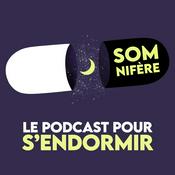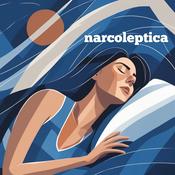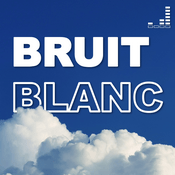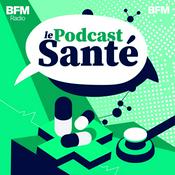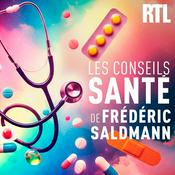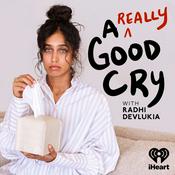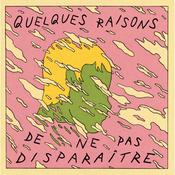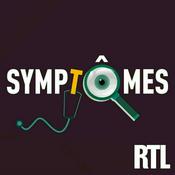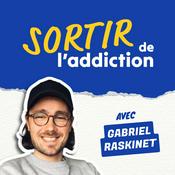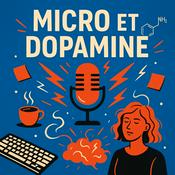The Locked up Living Podcast: Surviving and thriving in prisons and other challenging environments
Podcasters David Jones & Dr Naomi Murphy

Dernier épisode
92 épisodes
- Summary
In this conversation, Kate Eves shares her extensive experience in researching and investigating deaths in custody, discussing the complexities and challenges faced by professionals in this field. She highlights the importance of understanding the human stories behind the statistics, the impact of media narratives on public perception, and the need for transparency and accountability in death investigations. The discussion also touches on the emotional toll of this work, the inquest process, and the lessons that can be learned from past investigations.
Keywords
death, custody, investigations, mental health, media narratives, transparency, accountability, inquests, criminal justice, coping mechanisms
Bio: Kate has over 25 years’ experience of conducting research, inspections and investigations within custodial environments, in the UK and the US. Kate has worked with HM Inspectorate of Prisons, the Prisons and Probation Ombudsman, the Forum for Preventing Deaths in Custody and HM Prison Service, where she led on the national strategy for reducing violence in custody. Kate has also worked with numerous prison and jail systems in the United States to improve detention conditions and increase accountability following deaths and serious violence. Kate recently chaired the UK government's first statutory inquiry into mistreatment in immigration detention, during which she found evidence of abuse contrary to international human rights legislation. She is a member of the Independent Advisory Panel on Deaths in Custody, a group of experts who advise the UK government on the prevention of deaths in all forms of state custody.
Takeaways
Kate Eves transitioned from law to criminology, focusing on the aftermath of criminal cases.
Investigating deaths in custody requires a balance of objectivity and empathy.
The emotional impact of reviewing traumatic cases can be significant for professionals.
Media narratives shape public understanding of policing-related deaths.
Transparency in death investigations is crucial for accountability.
Inquests serve as a fact-finding exercise but can be intimidating for families.
Blame and shame can complicate the inquest process.
Learning from past investigations is often hindered by systemic issues.
Coping mechanisms are essential for professionals in high-stress roles.
Death is the ultimate leveller, affecting everyone regardless of status.
sound bites
"I think it is really easy to kind of forget that."
"The ultimate leveler, isn't it?"
"You just have to be very aware of it."
Chapters
00:00 Introduction to Kate Eves and Her Career
08:00 Exploring Policing Related Deaths
15:48 Investigating Deaths in Custody
20:45 Challenges in Death Investigation
23:57 The Inquest Process and Its Emotional Toll
26:42 Understanding Inquests and Their Challenges
30:18 The Role of Blame and Shame in Inquests
33:49 Learning from Inquests: Challenges and Opportunities
35:28 Confronting Death: Perspectives and Insights
40:40 Finding Hope in Difficult Work
45:26 Coping with Moral Injury in Challenging Environments Daniel (Audio); Titles How Therapy Helped a Survivor Reclaim His Identity After Decades of Repression
11/2/2026 | 43 minKeywords
childhood trauma, MDMA therapy, sexual abuse, repressed memories, family dynamics, forgiveness, healing, survivor stories, therapy, mental health
Summary
In this conversation, Daniel shares his profound journey of healing from childhood trauma and sexual abuse. He discusses the complexities of uncovering repressed memories, the role of MDMA therapy in his recovery, and the challenges he faced in disclosing his experiences to his family. Daniel emphasizes the importance of understanding grooming and conditioning, the struggle with forgiveness, and the significance of sharing one's story as a means of reclaiming dignity and sovereignty. He also offers valuable insights for therapists working with survivors of trauma, highlighting the need for compassion and understanding in the healing process.
Takeaways
Daniel's journey began with a struggle against self-hatred and trauma.
MDMA therapy played a crucial role in uncovering repressed memories.
The process of reliving trauma can be both painful and transformative.
Family dynamics can complicate the disclosure of abuse.
Grooming and conditioning are key factors in understanding abuse.
Forgiveness is a complex and personal journey for survivors.
Setting boundaries is essential for healing and self-preservation.
Support networks are vital for survivors of trauma.
Sharing one's story can be empowering and healing.
Therapists should approach survivors with compassion and understanding.
Chapters (timings approx)
00:00 Introduction to Daniel's Journey
01:46 Uncovering Childhood Trauma
05:11 The Role of MDMA Therapy
08:37 The Impact of Repressed Memories
12:25 Family Dynamics and Disclosure
17:33 Understanding Grooming and Conditioning
21:48 The Complexity of Forgiveness
26:13 Advice for Therapists Working with Survivors
30:18 Finding Healing and Support
42:50 The Power of Sharing Your StoryJonathan Cole (Audio); The Hidden Power of Embodiment: How Physical Conditions Shape Identity and Connection
04/2/2026 | 53 minIn this episode, renowned neurophysiologist Jonathan Cole shares insights on how our physical body shapes our sense of self, communication, and emotional life. We delve into how physical conditions influence identity, the importance of embodiment, and the nuances of non-verbal communication in human experience.
Key topics:
The role of neurophysiology in understanding sensory and motor deficits
How loss of movement or sensation affects personal identity and social perception
The impact of facial paralysis, disfigurement, and cosmetic surgery on social interaction and emotion
The significance of gesture, posture, and body language in communication
Differences in experiencing congenital vs. acquired conditions like blindness and deafness
How embodiment influences mental health and self-awareness
The societal implications of physical diversity and discrimination
Timestamps: (Approx)
00:00 - Introducing Jonathan Cole: Neurophysiology and accessible science
02:20 - How the nervous impulse explains bodily function and its narrative in literature
03:48 - Living without proprioception: Ian Waterman's story
06:30 - The curiosity-driven career bridging science and literature
08:37 - Embodiment and our automatic movements
10:22 - Practical challenges faced by those with proprioception loss
12:55 - The daily marathon of adapting to bodily disabilities
15:07 - Embodiment's effect on self-identity and social perception
16:47 - How social identity shifts with physical conditions like disfigurement or paralysis 18:48 - The importance of societal acceptance and personal resilience
22:03 - Visual vs. auditory vs. congenital vs. acquired sensory loss
25:10 - The process of adapting after spinal cord injuries and the role of community
27:29 - How embodiment influences verbal and non-verbal communication
30:49 - The role of body language and prosody in expressing emotion
34:22 - Embodiment and emotional expression: stories of women regaining feeling
37:10 - Cosmetic interventions, aging, and emotional expression
41:07 - Gesture impairments and their impact on relationships
43:20 - How physical expression (or lack thereof) influences support-seeking and social support
46:37 - Recognizing true character beyond facial cues
47:49 - Society's empathy and inclusion for embodied diversity
50:10 - The importance of understanding psychological and physical impairments
Resources & Links:
Hard Talk by Jonathan Cole https://blackwells.co.uk/bookshop/product/Hard-Talk-by-Jonathan-Cole/9780262049566?srsltid=AfmBOop5VwVWOtq9Q9DYvXR7jan_GAkc9HX_yJGbT294qjKQlQBgbM7V
Chekhov’s Sakhalin Journey: Doctor, Humanitarian, Writer (Paperback). Jonathan Cole https://www.waterstones.com/book/chekhovs-sakhalin-journey/jonathan-cole/9781350367517
Note:
The discussion underscores the profound connection between our physical embodiment and our emotional, social, and psychological selves. Recognizing and accommodating physical diversity enhances societal empathy and supports human connection.Alex Renton (Audio); Boarding School, Abuse, Slavery; Understanding History, Addressing the Present
28/1/2026 | 47 minKeywords
boarding school, trauma, recovery, family dynamics, sexual abuse, journalism, heritage, slavery, mental health, societal change
Summary
In this conversation, journalist Alex Renton discusses the profound impact of his boarding school experiences on his life and career. He reflects on the trauma associated with his time at school, including issues of abuse and the challenges of speaking out. Renton also explores the complexities of family dynamics, particularly in relation to his own experiences and the legacy of his family's involvement in slavery. Throughout the discussion, he emphasizes the importance of openness, empathy, and responsibility in addressing these difficult topics and fostering healing.
Takeaways
Alex Renton reflects on the lifelong impact of negative boarding school experiences.
His career as a journalist was influenced by his skepticism towards authority.
Alex began writing about boarding schools after learning about abuse cases at his former school.
He emphasizes the importance of speaking out against abuse and the challenges that come with it.
The conversation highlights the need for empathy towards survivors of abuse.
Family dynamics play a crucial role in how individuals cope with trauma.
Alex discusses the prevalence of abuse in boarding schools and the need for systemic change.
He explores his family's history of involvement in slavery and its emotional implications.
The importance of openness and transparency in healing from trauma is emphasized.
Alex advocates for better communication and understanding in addressing issues of abuse.
Sound bites
"I think, you know, I mean, I do talk people do."
"I think we still sending children into danger."
"I think we have to talk and we have to open."
Chapters (Timings approx)
00:00 The Impact of Boarding School Experiences
09:11 The Long-Term Effects of Trauma
18:08 Navigating Relationships with Parents
21:22 Stereotypes of Boarding School Education
24:43 Encouraging Disclosure and Support
27:44 The Prevalence of Abuse in Boarding Schools
29:47 Barriers to Disclosure: The Male Perspective
32:25 Societal Attitudes Towards Male Victims
34:30 Exploring Family Legacy and Historical Injustices
39:16 Healing Through Openness and Responsibility
43:26 Current Projects: A Hopeful Future for Child Safety
46:54 Ten second outro video.mp4Rochelle Marashi (Audio): Stalking's Psychological Impact, implications for therapists.
21/1/2026 | 28 minSummary
Rochelle Marashi, a psychotherapist, discusses her research on stalking and coercive control, emphasizing the importance of not labeling women as victims but as targets. She shares insights on the challenges of identifying stalking, the role of media in shaping perceptions, and the need for a multidisciplinary approach in therapy. Rochelle also highlights the psychological impact of stalking and the importance of therapists understanding the nuances of such experiences.
Check out Rochelle’s website for more information,
https://metacog.co.uk/
Khttps://metacog.co.uk/eywordshttps://metacog.co.uk/
keywords
Rochelle Marashi, stalking, coercive control, psychotherapy, media influence, psychological impact, multidisciplinary approach, victim vs target, therapist awareness, safety planning
Takeaways
Rochelle Marashi prefers the term 'targets' over 'victims'.
Stalking is calculated and targeted, not by default.
Media often romanticizes stalking, affecting public perception.
Therapists should name stalking to help clients understand.
Stalking can lead to terror, trauma, and isolation.
A multidisciplinary approach is crucial for support.
Therapists' awareness can aid in client disclosure.
Stalking isn't always recognized by clients or therapists.
Therapists should use minimal notes to protect clients.
Understanding stalking's escalation is vital for safety.
Sound bites
'Stalking is calculated and targeted.'
'Media romanticizes stalking.'
'Therapists should name stalking.'
'Stalking leads to terror and trauma.'
'A multidisciplinary approach is crucial.'
'Therapists' awareness aids disclosure.'
'Stalking isn't always recognized.'
'Use minimal notes to protect clients.'
'Understanding escalation is vital.'
Plus de podcasts Forme et santé
Podcasts tendance de Forme et santé
À propos de The Locked up Living Podcast: Surviving and thriving in prisons and other challenging environments
Can institutional culture challenge your mental health? What if your job makes you feel shame, sadness, grief, disgust and fear? What if you are expected not to feel? Or you are expected to be relentlessly competitive? What it’s like to live or work in a prison? Does working with people who commit murder, child abuse and rape affect people who work in prisons and the wider criminal justice system? How do people survive and thrive when facing significant challenges to our emotional health over a lengthy period? How do we protect ourselves and stay compassionate, loving and trusting? Importantly, how do we find and preserve hope? Fyodor Dostoevsky wrote that “The degree of civilisation in a society can be judged by entering its prisons”. In this weekly podcast ,your hosts, David Jones (Forensic psychotherapist) and Dr Naomi Murphy (Consultant Clinical & Forensic Psychologist) hope that exploring less visible aspects of prisons will help listeners see that prisons are a window into society and let us see people not only at their worst but also at their best. We feature a rich range of guests sharing snap shots of life in prisons and take a look at hospitals, schools, sport and the police in order to learn from other institutions. We learn about challenges to human integrity and hear important lessons and heart-warming stories about survival and growth when facing adversity in harsh places. We hope that sharing our conversations can help you make changes to your own relationship with institutions that might challenge your emotional health and well-being. Follow and connect with us and give us feedback. Let us know what you think works, and also what doesn’t. We want you to look forward to the podcast each week. We’ll also be extremely grateful for any reviews that you give us. A simple star or two or a thumbs up will do.Email: [email protected] or connect with us on:Substack: https://lockedupliving.substack.comTwitter: https://twitter.com/LockedUpLivingLinkedin: https://www.linkedin.com/in/naomimurphypsychologist/ https://www.linkedin.com/in/david-jones-41910b12/Insta: https://www.instagram.com/lockedupliving/
Site web du podcastÉcoutez The Locked up Living Podcast: Surviving and thriving in prisons and other challenging environments, Folie Douce - parlons santé mentale ou d'autres podcasts du monde entier - avec l'app de radio.fr

Obtenez l’app radio.fr gratuite
- Ajout de radios et podcasts en favoris
- Diffusion via Wi-Fi ou Bluetooth
- Carplay & Android Auto compatibles
- Et encore plus de fonctionnalités
Obtenez l’app radio.fr gratuite
- Ajout de radios et podcasts en favoris
- Diffusion via Wi-Fi ou Bluetooth
- Carplay & Android Auto compatibles
- Et encore plus de fonctionnalités


The Locked up Living Podcast: Surviving and thriving in prisons and other challenging environments
Scannez le code,
Téléchargez l’app,
Écoutez.
Téléchargez l’app,
Écoutez.




